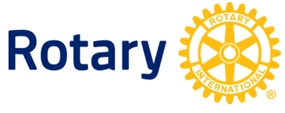Evanston, Ill. – With the world “This Close” – 99% – to eliminating polio from the planet, the effort is receiving an additional US$ 44.7 million boost from Rotary to support immunization activities, surveillance, and research spearheaded by the Global Polio Eradication Initiative, which aims to end the disabling viral disease worldwide by 2018.
Polio is set to become the second human disease ever to be eliminated from the world (smallpox is the first). To date, Rotary has helped 193 countries stop the transmission of polio through the mass immunization of children. Rotary’s new funding commitment, announced in advance of the Oct. 24 observance of World Polio Day 2014, targets countries where children remain at risk of contracting this incurable, but totally vaccine-preventable, disease.

“It is fitting that this round of Rotary grants coincides with World Polio Day, which we use to raise awareness of – and support for – the global campaign to end this terrible disease once and for all,” said Rotary International General Secretary John Hewko, the organization’s top executive. “Rotary is committed to relegating polio to the history books, and we welcome everyone’s support as we move ever closer to our goal of a polio-free world.”
He noted that the end-game strategy against polio includes the introduction of inactivated, injectable polio vaccine to supplement the progress achieved through the immunization of 2.5 billion children with the oral polio vaccine. Leading that effort is Sanofi Pasteur, the largest manufacturer of polio vaccine and co-sponsor with Rotary of a special program in Chicago on World Polio Day.
“As more than 120 countries in the world are introducing the Inactivated Polio Vaccine (IPV), we are beginning the last chapter on polio eradication,” said Olivier Charmeil, Sanofi Pasteur chief executive officer. “At Sanofi Pasteur, we have had a long-term vision of IPV as the ultimate public health tool able to finish the job started with Oral Polio Vaccine (OPV). Today we are honored to stand alongside Rotary, the historical partner in the battle against polio.”
About $18.5 million will go to the three remaining polio-endemic countries: Afghanistan ($7.4 million), Nigeria ($8.4 million), and Pakistan ($2.7 million). An endemic country is one where the wild poliovirus has never been stopped.
Another $9.5 million is marked for previously polio-free countries currently reporting cases “imported” from the endemic countries: Cameroon ($3.5 million), Ethiopia ($2 million), and Somalia ($4 million).
And $10.4 million will go to polio-free countries that remain at risk of reinfection: Democratic Republic of Congo ($1.5 million), India ($4.9 million), Niger ($1 million), South Sudan ($2 million), and Sudan ($1 million).
The remaining $6.3 million will go toward polio eradication research.
Rotary provides grant funding to polio eradication initiative partners UNICEF and the World Health Organization, which work with the governments and Rotary Club members of polio-affected countries to plan and carry out immunization activities. Mass immunizations of children via the oral polio vaccine must continue until global eradication is achieved.
To date, Rotary has contributed more than $1.3 billion to fight polio. Through 2018, the Bill & Melinda Gates Foundation will match two-to-one every dollar Rotary commits to polio eradication (up to $35 million a year). As of 2013, there were only 416 confirmed polio cases in the world, down from about 350,000 a year when the initiative launched in 1988.




